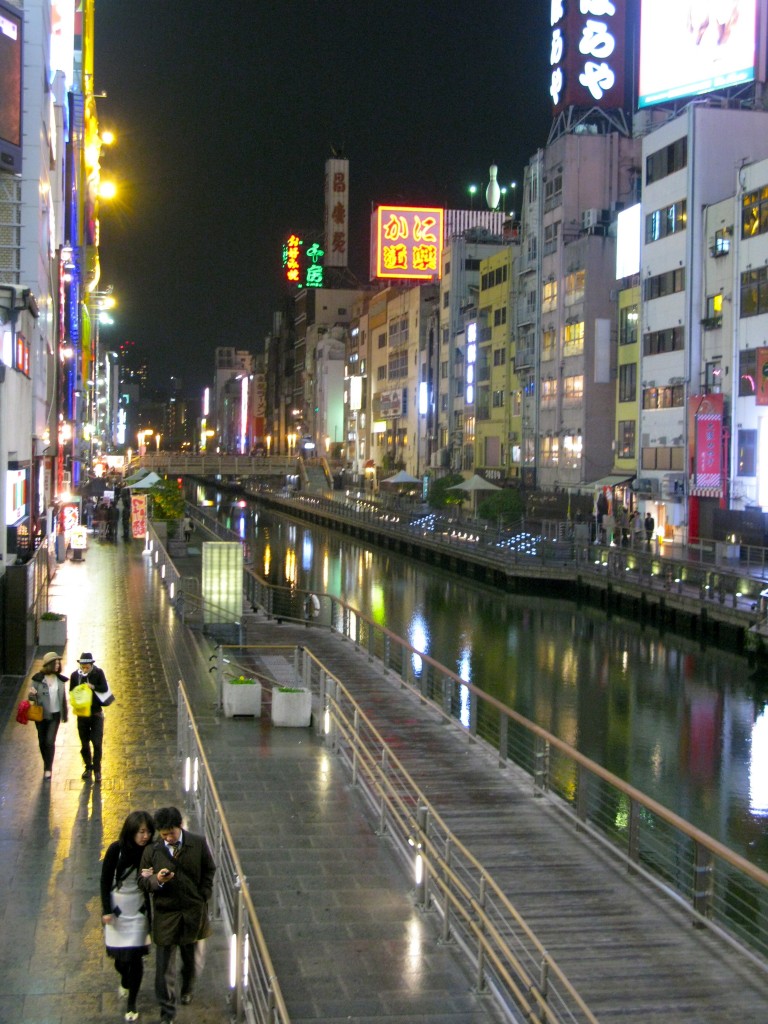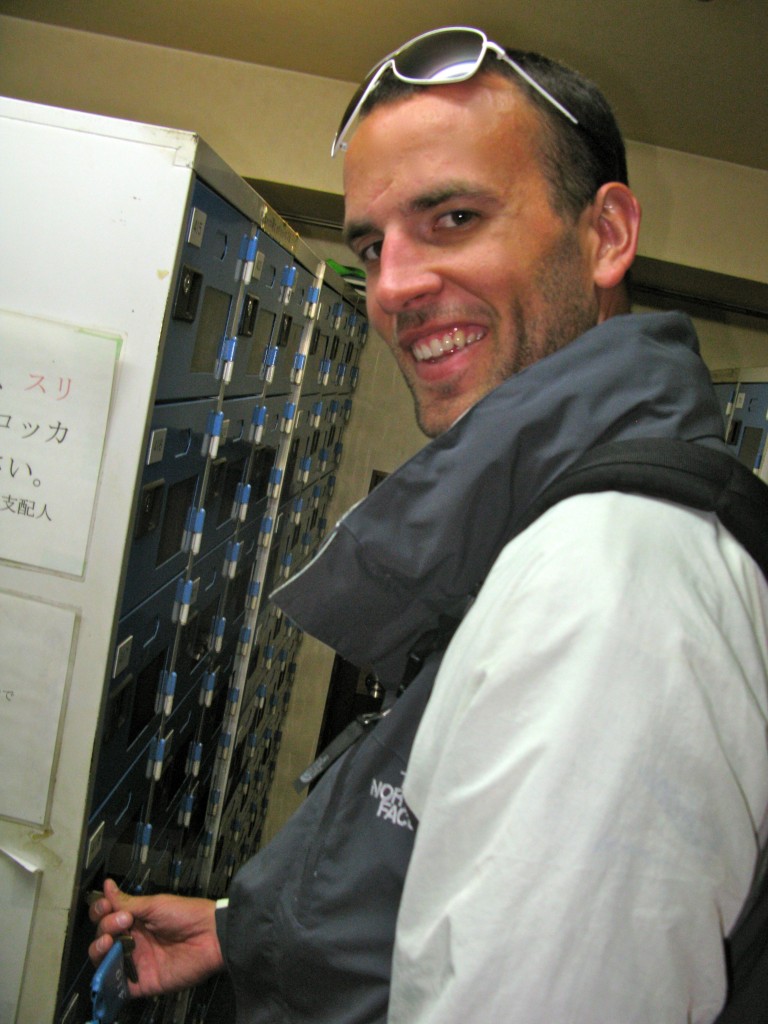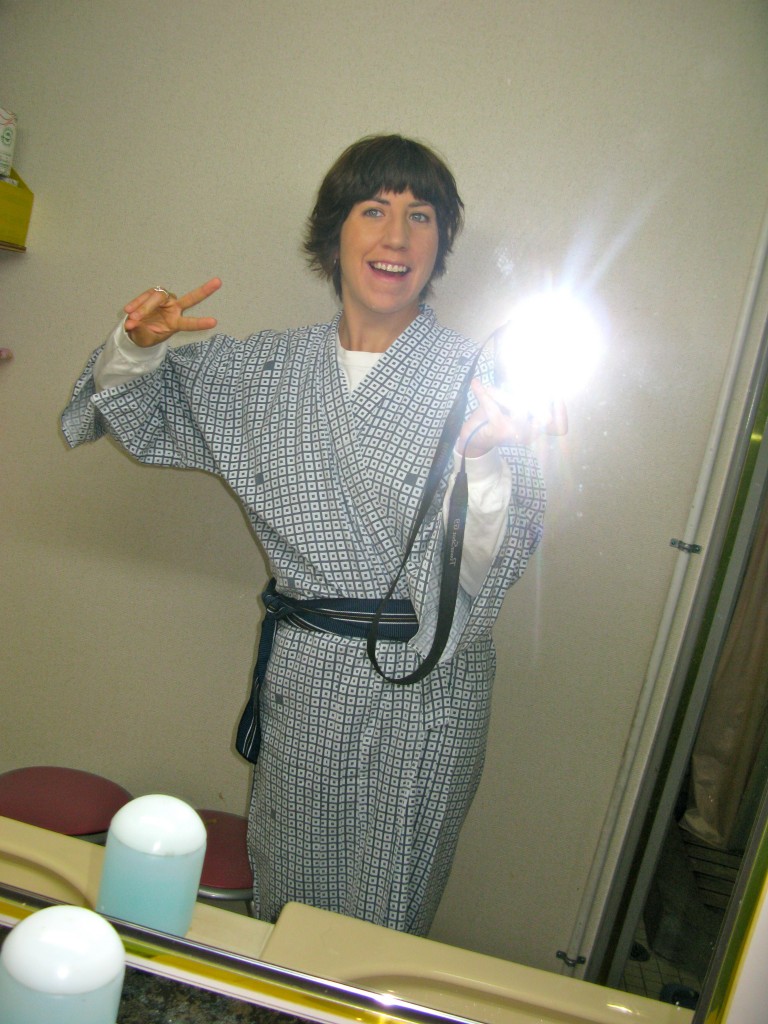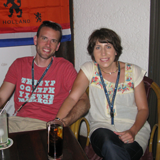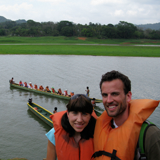Geeky confession: we both really enjoy watching old episodes of Star Trek: The Next Generation. Okay, now that we’ve got that out in the open, we can talk about Japan. One of the things we like about TNG is how the voyagers on the Enterprise visit civilizations on other planets that are often more advanced than the civilizations on Earth. They usually have one or two major environmental attributes that caused them to evolve very differently. We realize that Eastern thought is a huge part of Western thought and that the far East is not given enough credit by Western minds for this. We would not have evolved at all had it not been for Japan and China. Even with all the things America has in common with our Eastern friends–love of family, beauty, and history–for us, visiting Japan as an American traveler helped us understand the true meaning of the word “foreign” better than any other place on our itinerary.
We admit it: navigating Japan felt completely bizarre to our western minds. In some areas of Japan, blocks are named and streets are not. Structures are numbered in the order in which they were built instead of sequentially as one progresses along a street. To top it all off, the language barrier was greater in Japan than in any of our other ports of call, so asking for directions proved difficult. Considering all these factors, it’s not surprising that we found ourselves wandering back ‘n forth around several Japanese cities (Osaka, Kyoto, Tokyo, and Yokohama) spending an hour or so looking for destinations that were only supposed to be ten minutes away on foot.
In Osaka, we stayed at a capsule hotel. On one floor women were allowed to sleep: the rest of the hotel was for men. We each got a locker to store our backpacks. Inside, we found cool cotton kimonos and some funky little rubber slippers. The slippers covered about half of Sam’s size 13 feet (surprise!). We didn’t know it at the time, but the experience of sleeping in a rack of tiny capsules was actually just a taste of things to come: we are currently living in a tiny converted crew cabin with bunk beds for three weeks as we continue working on the ship during a highly popular (and oversold) Enrichment Voyage.
Sleeping in the equivalent of an oversized dresser drawer feels strange enough, but perhaps the most alien experience of all was the bathing ritual of the Japanese onsen. Having grown up in a family of six and having spent a number of years getting ready for the day at the local YMCA after working out, Sam is no stranger to a lack of privacy. Still, even the curtain-free showers of the Y are insufficient preparation for the experience of soaking in a series of tubs for a couple of hours with a bunch of naked Japanese businessmen. Was it odd and uncomfortable at first? Damn straight. But if nothing else, Semester at Sea teaches us to let go of as many preconceived notions as we can. Go with it, and Japanese bathing turns out to be pretty relaxing. It’s also worth the time it takes…and that’s coming from a guy who typically gets showered, dressed and ready for the day in 10 minutes or less.
Finally, the entire Japanese culture is extremely polite. This, too, felt foreign. It’s not that all Americans are rude, it’s just that being in a country where manners are prized made us realize how used we are to people doing insignificant but also inconsiderate things like cutting in line or answering cell phones during meals with friends. Case in point: in Japan, whenever we handed our credit card to a cashier to ring up a purchase, it was received carefully with both hands. We were given at least a couple courteous bows, and our card was returned to us in the same manner, with many bows and humble smiles of gratitude for the purchase. We never heard a cell phone ring in public, despite an abundance of mobile phones everywhere we went. This includes on the sidewalk, on the train, in the mall, and in restaurants.
Six days in a country isn’t long enough to fully understand all the manners and etiquette of a place, but the experiences we had made us feel comfortable and welcome while we were there. That’s a good feeling, and it’s one that doesn’t get lost in translation. Japan made us want to pay it forward. The respect and honor shown to us as human beings made us focus on responding to others in as polite and kind a manner as possible. We evolved differently, and we appreciate the that. Domo arigato, Japan.


